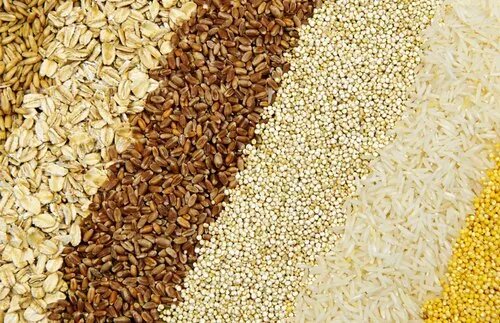Multigrain Atta might sound like a health-conscious choice, but it's essential to dive deeper into the potential side effects that can come along with its consumption. While the idea of getting a mix of various grains in one go seems enticing, it's important to understand that this blend can sometimes lead to some unwanted health issues.
You see, multigrain atta is made by mixing different types of grains together, like wheat, oats, barley, and more. It's marketed as a way to get all those good nutrients from various grains in one place. But here's the catch: in some cases mixing all these grains can actually cause problems for your stomach.Lets explore these issues in laymen language
Potential Issues by consumption of Multigrain Atta
1. Digestive: One of the most common side effects of consuming multigrain atta is digestive problems. The combination of different grains can put a strain on your digestive system, making it work harder to break down the mixed ingredients. This can result in bloating, gas, and general discomfort. Your body might struggle to process these mixed elements efficiently, leading to digestive upset.
2. Constipation: Multigrain atta has also been associated with causing constipation in some individuals. The complex mix of grains can slow down the digestive process, making it difficult for stool to move smoothly through your intestines. This can leave you feeling sluggish, uncomfortable, and struggling with irregular bowel movements.
3. Nutrient Absorption: While multigrain atta boasts an array of nutrients, the blend of various grains might actually hinder the absorption of these nutrients. Some of the grains contain compounds that can block the absorption of important minerals like calcium, zinc, and iron. So, even though you're eating nutrient-rich foods, your body might not be able to extract all the benefits.
4. Allergic Reactions: Another concern is that in some cases potential allergies to specific grains in the mix can occur. If you're unaware of an allergy to one of the grains used in the multigrain atta, consuming it could lead to allergic reactions like itchiness, swelling, or hives.
5.Imbalance in Nutrient Ratios: Different grains have varying nutrient profiles, and when combined, they might create an imbalance in certain nutrient ratios. This can affect your overall nutritional intake and potentially lead to deficiencies in specific vitamins and minerals.
6. Caloric Intake: Multigrain atta products, like bread or baked goods, can sometimes be higher in calories than their single-grain counterparts. If you're not mindful of portion sizes, you might consume more calories than you intended, which could lead to weight gain over time.
But don't worry, it's not all bad news. If you really want to try multigrain atta, there are a few things you can do to make it easier on your stomach. One is to eat it in smaller amounts. Instead of having it every day, maybe try it once in a while. You can also drink plenty of water and eat foods high in fiber to help your digestion.
Remember, just because something is branded as "healthy" doesn't mean it's right for everyone. Our bodies are unique, and what works for one person might not work for another. If you're unsure whether multigrain atta is a good choice for you, it's always a good idea to talk to a doctor or a nutrition expert.
So, before you jump on the multigrain atta bandwagon, think about how your body reacts to different foods. If you've had digestion problems or constipation after eating it, it might be worth considering other options. Your health is important, so make sure you're making choices that are right for your body.

 Multigrain atta is often promoted as a super healthy option, but there are some things you need to know before you start using it regularly. While it might seem like a great choice, there might be some health risks associated with consuming multigrain flour.
Multigrain atta is often promoted as a super healthy option, but there are some things you need to know before you start using it regularly. While it might seem like a great choice, there might be some health risks associated with consuming multigrain flour.










.jpeg)


.jpeg)
.jpeg)
.jpeg)
_(1).jpeg)

_(1)_(1)_(1).jpeg)
.jpeg)
.jpeg)
.jpeg)








.jpeg)
.jpeg)